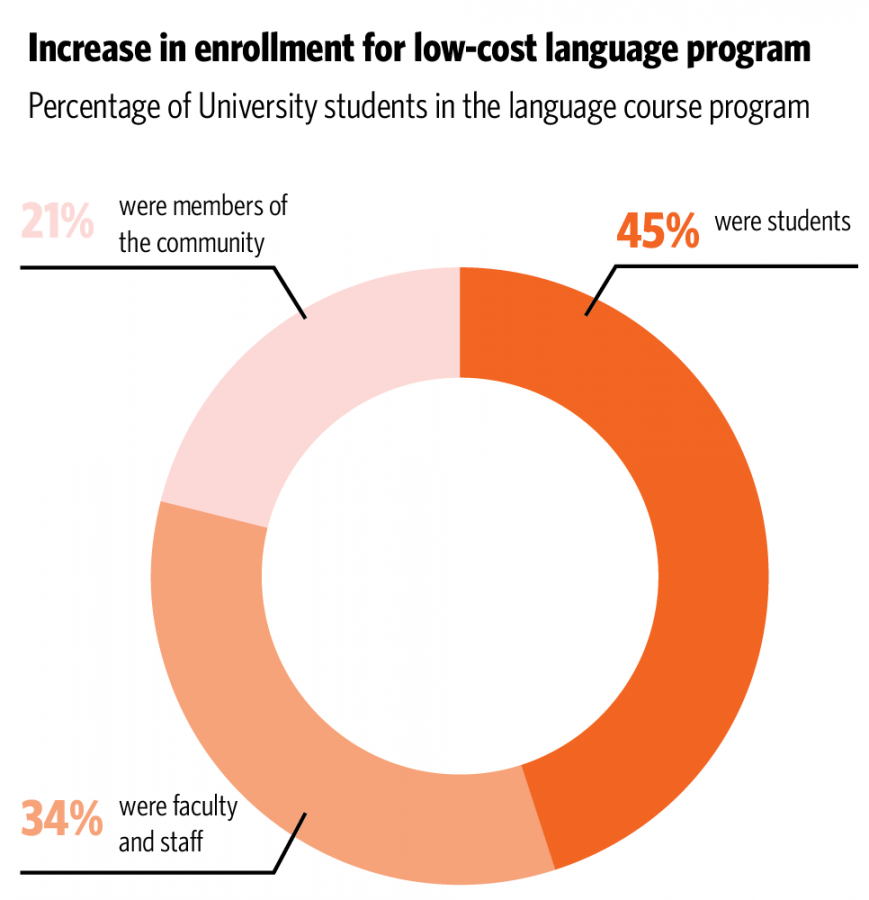Intense foreign language courses keep costs low while expanding
April 12, 2018
Florencia Henshaw knew she had found something unique when her first Spanish class with the Intensive Foreign Language Instruction Program began.
Two years later, Henshaw, now director of advanced Spanish and of the Center for Language Instruction and Coordination, is looking to expand the program that once helped her grow as an instructor.
The program operates during winter and summer breaks, covering a wide range of language courses including Latin, Arabic and Hindi. To register for a 30-hour course with the program, University students only need to pay $100.
What makes the program unique is students won’t get any credits for taking the courses, Henshaw said.
“If it’s a course for credit, you have to follow the syllabus,” Henshaw said. “In IFLIP, you should be able to take courses just for pleasure without worrying about credit, exams and homework.”
Get The Daily Illini in your inbox!
Henshaw said the next step for the program is to open online courses, expand class schedules during summertime and make the topics of the courses more specific.
The expansion would not increase the enrollment fee, Henshaw said, as long as the amount of enrollment can sustain the program operation.
“The fee has been frozen for several years,” Henshaw said. “We want to keep the courses affordable because we want people to take the classes.”
IFLIP was established nearly two decades ago by the School of Literature, Culture and Linguistics, then a unit within LAS, Henshaw said. Initially, the program was only dedicated to help University students, but now it accepts all members of the community.
“In our classes we have retired seniors, graduate students and professors,” Henshaw said. “But all of them have one thing in common: They really, really want to learn the languages.”
Kara Yarrington, doctoral student in Hispanic Linguistics and head teacher’s assistant of the department of Spanish and Portuguese, said in an email she enjoyed teaching the IFLIP courses.
“The students in the IFLIP courses are self-motivated to learn the language, which brings a lot of enthusiasm to the classroom,” Yarrington said.
Because students are committed to learning, the instructors have the freedom of tailoring the courses to individual needs, Henshaw said.
“We don’t have students here to fulfill their requirements. It’s much more about learning the language and experimenting with pedagogical materials,” Henshaw said.
Pamela Kline, TA in LAS, said in an email she started teaching IFLIP classes because she wanted to meet students from different demographics.
Kline said she thinks students benefit a lot from the course even though they won’t get any credits.
“IFLIP is a wonderful way to take your learning into your own hands, set within a fun and relaxed environment,” Kline said.







